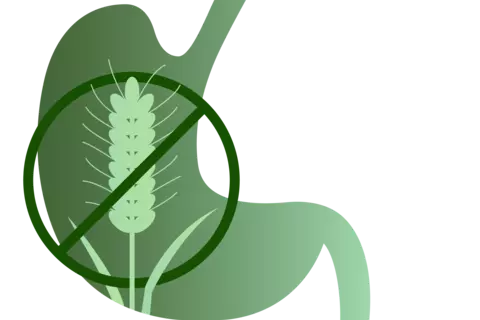New entity of adult ultra-short celiac disease
Raju SA et al, Gut. 2024;73(7):1124–30
In this first multicenter cohort study, patients with celiac disease restricted to the duodenal bulb were younger at diagnosis but had a similar symptomatic burden and response to gluten-free diet as compared to those with “conventional” celiac disease. These findings endorse the recommendation of biopsy sampling of the duodenal bulb as part of the diagnostic work-up for celiac disease.
Background: Ultra-short coeliac disease (USCD) is defined as villous atrophy only present in the duodenal bulb (D1) with concurrent positive coeliac serology. The authors present the first, multicentre, international study of patients with USCD.

Methods: Patients with USCD were identified from 10 tertiary hospitals (6 from Europe, 2 from Asia, 1 from North America and 1 from Australasia) and compared with age-matched and sex-matched patients with conventional coeliac disease.
Findings: Patients with USCD (n = 137, median age 27 years, interquartile range [IQR], 21–43 years; 73% female) were younger than those with conventional coeliac disease (27 vs. 38 years, respectively, p < 0.001). Immunoglobulin A-tissue transglutaminase (IgA-tTG) titres at index gastroscopy were lower in patients with USCD versus conventional coeliac disease (1.8 x upper limit of normal [ULN] [IQR, 1.1–5.9] vs 12.6 x ULN [IQR, 3.3–18.3], p < 0.001). Patients with USCD had the same number of symptoms overall (median 3 [IQR, 2–4] vs. 3 [IQR, 1–4], p = 0.875). Patients with USCD experienced less iron deficiency (41.8% vs. 22.4%, p = 0.006). Both USCD and conventional coeliac disease had the same intraepithelial lymphocytes immunophenotype staining pattern; positive for CD3 and CD8, but not CD4. At follow-up having commenced a gluten-free diet (median of 1181 days IQR, 440–2160 days) both USCD and the age-matched and sex-matched controls experienced a similar reduction in IgA-tTG titres (0.5 ULN [IQR, 0.2–1.4) vs. 0.7 ULN [IQR, 0.2–2.6], p = 0.312). 95.7% of patients with USCD reported a clinical improvement in their symptoms.
Interpretation: Patients with ultra-short coeliac disease are younger, have a similar symptomatic burden and benefit from a gluten-free diet. This study endorses the recommendation of duodenal bulb sampling as part of the endoscopic coeliac disease diagnostic work-up.